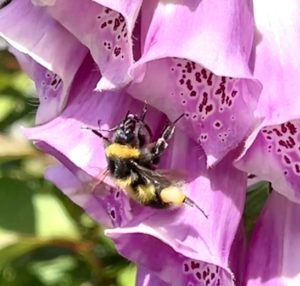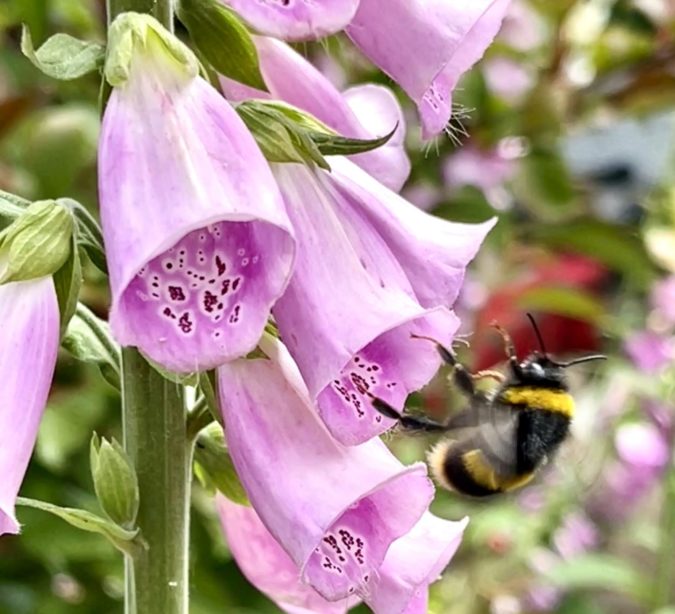Bumblebee pollen collecting

Bumblebees (and bees) collect nectar and pollen. Pollen is a vital food, used in the various stages of a bumblebee’s life. In Spring, newly emerged queens feed on pollen, then it is used to feed its their sister workers. The workers, in turn, take over the feeding of the colony (the larvae and future queens). If not enough pollen is collected, then the colony will not thrive, which can have significant long term effects. Bumblebees are already facing many threats (from habitat fragmentation, agrochemicals and disease).
The collection of pollen is a demanding process, and bumblebees will forage over a wide area. They start their pollen collecting activities earlier than many insects as they can warm themselves up by ‘shivering’, that is, rapid muscle contractions which generate heat, warming the insects up ready for flight. Bumblebees can fly in colder conditions and at higher elevations than many other insects.
However, research at North Carolina State University has shown that the North American bumblebee (Bombus impatiens) can overheat when exposed to high temperatures (circa 42oC plus). So, if a bee is carrying a significant load of pollen and it is a hot day, its muscles have to work harder and the bee is at risk of overheating. A bumblebee loaded with pollen may be 2oC hotter than an unladen bee; it may be reaching its ‘thermal limit’ - a temperature at which its organs are damaged. Climate change means that many parts of the world are now experiencing extreme weather events, when temperatures can reach into the forties.

Bumblee leaving foxglove
Increasing temperatures could affect the foraging activities of bumblebees in a significant way - affecting how much pollen is collected and how much pollination takes place. If pollen collection is reduced then colony development is affected and so population numbers will be affected. Bumblebees are key pollinators in natural and agricultural systems, and if their numbers decline there will be ecological and agricultural consequences.
Comments are closed for this post.
Discussion
We have lots of Bumblebees as usual but I get so worried by the numbers just on their last legs and then they’re gone.
I don’t remember this earlier in my life; what and why is it happening now?

The blog has several posts about problems that bumblebees are facing
blogs
22 July, 2023